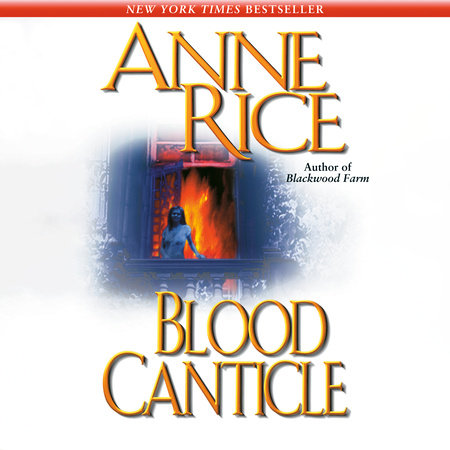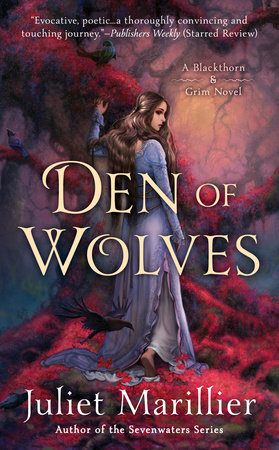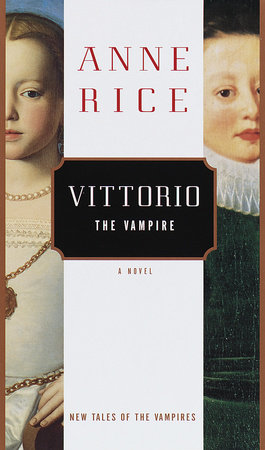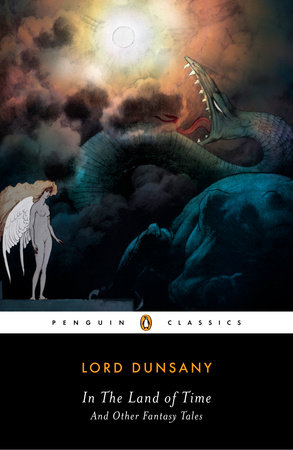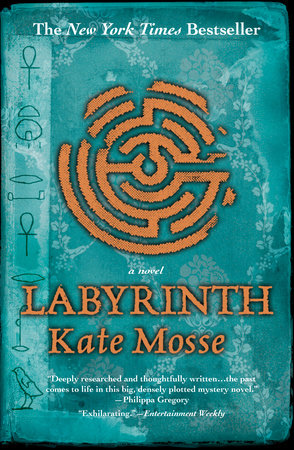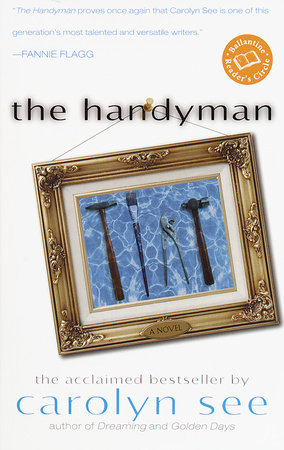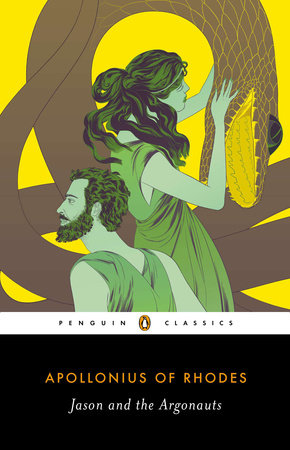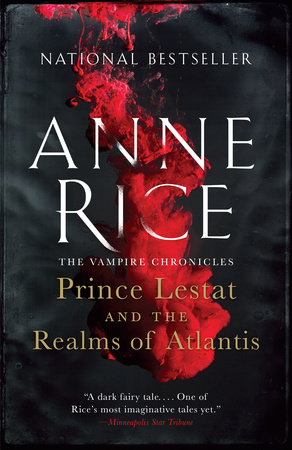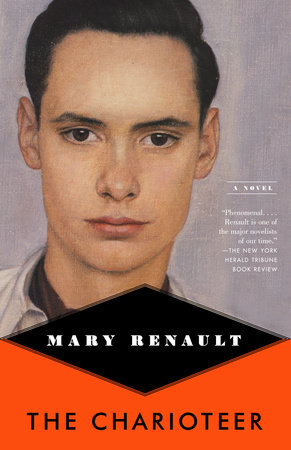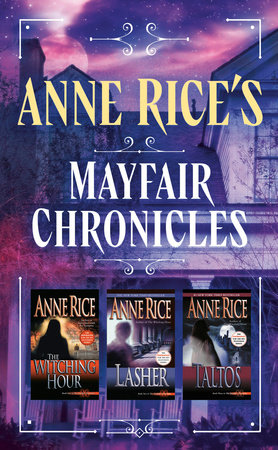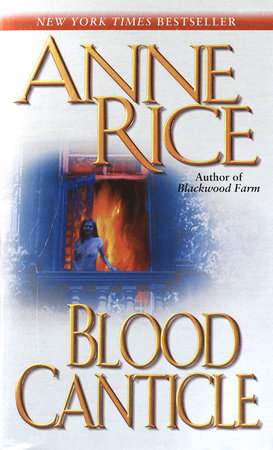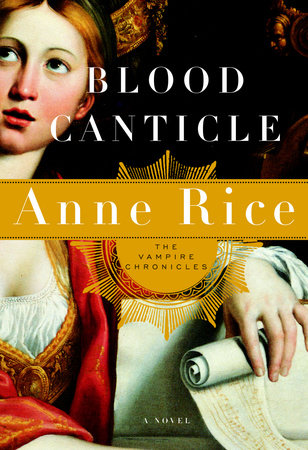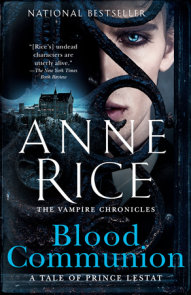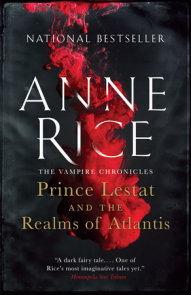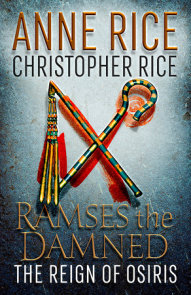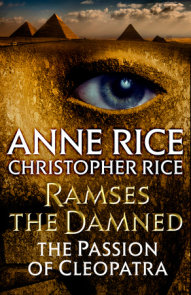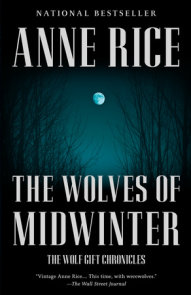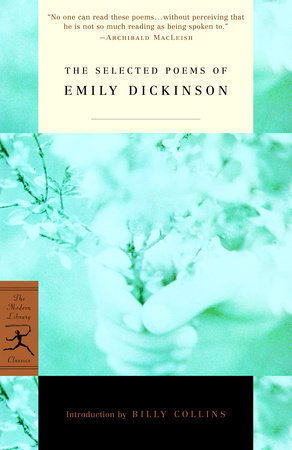Author Q&A
A Conversation with Anne Rice
Q: Thanks to Bram Stoker and Hollywood, vampires have long been associated with Transylvania and even Victorian England. But in Interview With the Vampire, you brought them to America, and to the present. How do you think that changed their role in literature?
A: Well, certainly I acknowledged the vampire’s European roots immediately, bringing Louis and Lestat my heroes into being in colonial Louisiana, envisioning them as French speaking aristocrats in the new American wilderness, and then bringing them forward into an America they could see with an immortal’s stunned and wondering vision. But the biggest change was the fact that I drew much much closer to the inner workings of the vampire’s mind in my work than Stoker or Sheridan LaFanu had done in theirs. I wrote from the vampire’s point of view, describing his or her agony and loneliness, and mapping the price of the gift of eternal life and its inevitable accumulation of knowledge and misery.
Q: Can you tell us a little about Blood Canticle, your latest entry in the Vampire Chronicles?
A: The Vampire Chronicles are really about the evolution of the Vampire Lestat, the central hero. Individual books may veer off to tell the stories of others–Pandora, Marius, Armand– but in the background there is always Lestat, the central hero, and the concern is his moral growth. Blood Canticle is the final step in that maturation. In this book he falls in love with a mortal woman Rowan Mayfair, in whom he finds an intellect he can completely respect and which he has no desire to conquer. But more importantly, Lestat finds himself ensnared in mortal life in such a way that he realizes he has outlived himself. Blackwood Farm is the place of his vampiric demise, so to speak. It is a warm and loving place, the home of Quinn Blackwood, the hero of the novel by the name of Blackwood Farm. Its simple people captivate Lestat, and there he loses his power somewhat, and begins to conform to the rules of Blackwood Farm, to give up his lust for wandering and for blood, and for any sort of independent alliance with another immortal. He loses his desire to dominate. Caught as he is in the charm of Blackwood Farm, he is doubly unable to respond to his love for Rowan Mayfair except with pure love, a concept that is new to him. There is much more to the book, much much more. But that is its essence as regards to Lestat. He outlives himself.
Q: In Blood Canticle, you again merge the storylines of the Vampire Chronicles and the Lives of the Mayfair Witches, and vampire bad-boy Lestat meets and is deeply attracted to Rowan Mayfair. Was this attachment something you planned, or were you taken by surprise? Do you have future plans for the two of them?
A: No, I didn’t plan the alliance. It took me by surprise. In fact, I had often said I would never join the witches and the vampires. It truly just happened. This is the way it is with my work. I enter into my novels when I write. They sweep me up and I get lost in them. This is not to imply that I don’t control them. I do, but I trust enormously in a guiding madness. When Rowan and Lestat came together, something of great intensity happened. I was challenged to pull this off, and I went for it. I was amazed at the heat it generated for me as I wrote it. I was also very caught up with the characters around them. Rowan’s character is very coherent for me, and so is Lestat’s, and when the coming together occurred, it was highly charged. I loved it.
Q: Despite the fact that your vampires cannot have sex, your books are drenched in sensuality and romance. How do you do that?
A: Vampire literature has always been sensuous. The vampiric drinking of blood is sensuous. Everyone knows it, feels it. The taking of another’s blood is sacramental and sexual. It is highly metaphoric. It resonates with the early sacrificial altars of humankind and the chants of those who surrounded the altars as the victims were slaughtered, the blood was burnt, and the smoke went up to heaven. "The blood is the life," said the Lord High God. The imagery is too powerful not to be revisited again and again in our literature, no matter what happens on the Late Late Show or at the Saturday Night Movies. As for my doing it, I went with the flow. I bent down and pressed my own lips to the victim’s throat, along with Lestat, and tasted that blood, that connection. I did it in my mind, and the intimacy was there for me, and I recorded it on the page. It was a feat of imagination and the words followed.
Q: I know you recently lost your husband, Stan Rice, and that Blood Canticle is dedicated to him. I’ve also read that the character of Lestat was based on Stan. How do you think this will affect your writing of the character?
A: I don’t know how it’s going to affect my writing about Lestat. I finished Blood Canticle only weeks before Stan died. I was writing in the room adjacent to the room in which Stan was lying very sick. Stan’s illness and death was so swift, it was truly horrible. And Stan was Lestat; he was the inspiration. Perhaps it is best to say Lestat was Stan and me. He was Stan and what Stan taught me. Lestat was inspired by Stan, and then I became Lestat. As it stands now I don’t intend to write about Lestat again or about the Mayfairs. I see this as the last novel. But I have said such things before, and then Lestat has come back to me. He’s a hard character to kill. But for me this is what my editor calls a "crescendo novel." I am turning away from all my past work with this novel. I am on a new path. I don’t want to write anymore about the damned. However, I made this decision before we knew that Stan was sick. I made it in July of 2002. And Stan found out about his illness in late August. It was an unforgettable summer. Stan painted unforgettable paintings that summer. He died in less than four months from diagnosis.
Q: Vampires are so popular these days, with Buffy the Vampire Slayer and Angel on TV, and plenty of vampire books in the stores: vampire romances from Shannon Drake and vampire mysteries from Laurell K. Hamilton and Charlaine Harris. I think it’s safe to say this trend started with your work. How do you feel about about these other stories? Do you read or watch any of them?
A: Actually, I don’t know much about the other vampire material. I have seen Buffy once or twice. Thought it was very amusing. As to reading matter, I seldom, if ever, read other vampire novels. And now that I am turning away from the material altogether I will probably never read the other books. If I contributed to vampire literature, I’m happy. When I hear that students are reading my work in high school or college classes, I am thrilled. Now that is wonderful, and news of that does come to me.
Q: Can you give a hint of what your next book will be about? Vampires, witches, or something new?
A: All I can say is: it’s an entirely new path.
Q: Are you excited about touring for Blood Canticle?
A: Yes. I’ll be going all over the country, and I look forward to it as always. I love to see my readers. It’s exhausting at times, but it’s very invigorating. I wish every author could have such an opportunity: to see face to face those who care about the books. I love the signings. I love the different types of people who come. It’s very hard to tell what type of readers I have. Men and women are about equal. There are young people and older people. It’s a great mix.
Q: Finally, is there anything else you would like to say about Blood Canticle?
A: What else? That Lestat’s voice is precious to me. If anything draws me back to the vampires, it will be Lestat’s voice, and the strength I feel when I am in possession of that voice, the near prophetic power I feel when I see through Lestat’s eyes. There lurks in me a great vision of the world that perpetually seeks expression, and so far in my writing it has found it’s clearest force in Lestat. Blood Canticle has some of my most clean and I think near personal perfect writing. I mean personal perfect like personal best. I hope others will enjoy that, maybe pick up on that. But they may not. Who knows? You never know what you’ve done, really. You only know what you think you did! Thank you so much.
